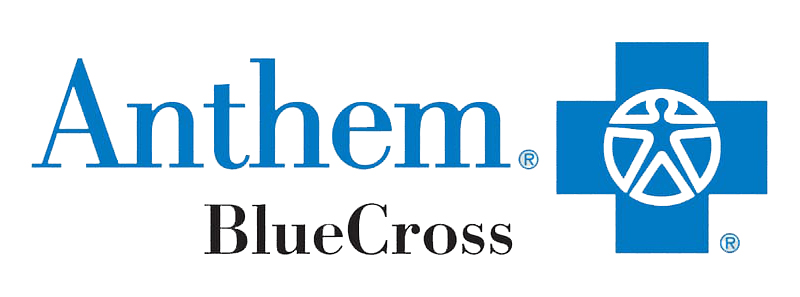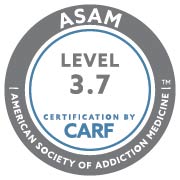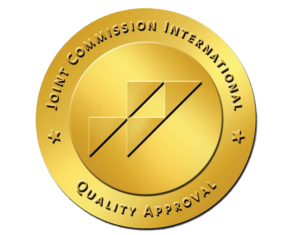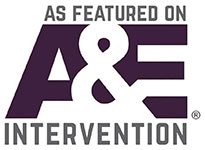How do you convince someone to go to rehab? How do convince a loved one to get help, especially if they are in denial and refuse to commit to treatment? Since there is no hard and fast rule on exactly how to convince a resistant loved one into agreeing to treatment, there are some ways to help make the need more apparent so she may make the decision on her own.
Most women with a substance abuse problem have a hard time admitting they have a problem—denial can keep her stuck in a vicious cycle. An intervention may be a great solution. The old idea that someone must hit her bottom is not a necessary tool, since someone can always fall farther.
A substance abuser’s denial, or secrecy about their drug and alcohol use, may deter a family member to intervene. One of the greatest dangers of drug and alcohol abuse is that you never know if the next use will result in an overdose, an accident, or death. Family members and loved ones are often the concerned individuals who can persuade her to seek help.
It is advisable for loved ones to either have an informal but pointed and encouraging talk about rehab or to stage a formal intervention with a trained interventionist. A poorly organized intervention can do more harm than good, cause anger, and undermine the intended goals. The organizers will want to carefully plan the intervention beforehand in order to increase the likelihood of achieving the main goal.
It’s never easy to ask for help, and it’s especially difficult to convince others they need to make a major life change, which is why staging an intervention is doubly challenging. Keep calm, keep focused, and keep the following information handy when helping a loved one enter a rehabilitation program.
Types of Interventions
Rehab isn’t a one-size-fits-all procedure. Your unique situation will dictate the most appropriate course of action, but these are some of the approaches.
- The ‘Love First’ Approach – Help your loved one craft a plan to move away from their addictive lifestyle and work on a schedule to assure that they stick to it. This approach should identify milestones of success and reward them with positivity and openness.
- The Wake-Up Call (Brief Intervention) – If the subject is truly unaware that they have a problem, this approach could work best. Sit them down, state the facts, and open their eyes to the severity of the situation.
- Medical Motivation – This is a method specific to a controlled, hospital-like environment. Following an event such as an overdose or an alcohol-related car crash, an addict is especially vulnerable and likely to listen. The attending physician can present your loved one with the high stakes of continued substance abuse. For example: if you continue to drink, your liver will become cirrhotic or you will inevitably have another accident.
- Tough Love Intervention – This is the most publicized form of intervention (popularized by the reality show of the same name). In a ‘tough love’ scenario, a group of friends and family gather for the benefit of the addict in their life and present him or her with an ultimatum. The tone of the message is that we love you unconditionally, but refuse to allow your destructive behavior to continue. No more financial support, no more place to sleep, no more proverbial ‘nice guy’ until you check into rehab.
How to convince someone to go to rehab? Seek Professional Help!!!
No matter which of the above approaches you take, it’s important not to go it alone. The presence of a trained professional will most likely help the process go more smoothly. This interventionist can draw on past experience to predict problems before they occur and can draw on their education to elicit the best results. For example, if they studied psychology, they can draw upon the various therapeutic methods that go into a successful intervention. Look for individuals with the following certifications: LCSW (Licensed Clinical Social Worker), CADC (certified alcohol and drug counselor), LADC (licensed alcohol/drug counselor), and CCDC (certified chemical dependency counselor). Some experts have a more general designation of CIP (Certified Intervention Professional) which may carry with it any of the aforementioned disciplines.
The credentials of the individual or individuals with whom you collaborate will depend on the specific nature of your loved one’s addiction. Every case is unique and every person is at a different stage in the rehab process. Tailor your search for a medical professional accordingly.
The Non-Intervention Intervention: Write It Down
If direct confrontation doesn’t work for you or your loved one, take a step back, take a deep breath, and take a moment to compile your feelings in a letter. The written word is not only powerfully thoughtful, but it?s also very concrete. It provides a paper trail for your interaction. The addict has a physical souvenir to which he or she can refer when times get tough. Your letter will stay with them even when the spoken word fades from memory. There’s no bartering or excuses; it’s all written down in black and white.
A Picture Is Worth a Thousand Emotions
In addition to writing down your thoughts, you can also share your feelings in picture form. Addiction often ravages its victims, both inside and out, and those effects can be seen in photographs. Without shaming or blaming, you can subtly share old memories of how your special someone used to live, laugh and love. These old pics are a reminder of the person within, an identity that’s never lost but sometimes overshadowed by addiction. Images are highly motivating forces and can help convince your loved one that rehab is the path back to health and happiness.
How to convince someone to go to rehab? The Do’s and Don’ts
Seeking help is an emotionally tumultuous process. You can’t be expected to know everything, but here are a few quick guidelines when trying to figure out how to convince someone to go to rehab and approaching the subject.
- Do Create Boundaries – This is no time to be vague or wishy-washy. You want your loved one to get results, so be explicit about those results. For example, you won’t lend him or her money until you can be sure that the funds won’t be spent on drugs or alcohol.
- Don’t Make It About Yourself – You’ve been hurt. We know this. But it’s not about you right now; it’s about moving forward. You can touch upon the difficulties of your past relationship without dwelling on your pain. Instead, focus on how much better your relationship will be once substances are out of the picture.
- Do Focus on the Illness – Addicts often feel ashamed of their affliction, but that’s detrimental to the recovery process. Let your loved one know that you don?t blame them for who they are. You blame the illness. They can’t get better without addressing the root of the problem, and that’s why rehab is important.
- Don’t Fall Back on False Promises – You’ve heard it all before. ‘I can quit anytime I want’ or ‘It won’t happen again’ or ‘My behavior is my business.’ But the truth is that addiction affects everyone within the addict’s realm. Don’t believe the same promises that failed in the past; accountability is the key to a successful new lifestyle.
- Do Feel the Weight of the Moment – This is an intense process, so don’t be afraid to acknowledge your emotions as well as those of your loved one. Cry, talk, be heard, and be true. Hopefully, you won’t need to go through the intervention stage again, so let it all out and remember how this feels.
- Don’t Accept Excuses – There’s nothing acceptable about hurting yourself or those around you. Apologies are all fine and well, but they don’t erase the pain of the past. Mistakes can be forgiven but not forgotten, and they should definitely not be repeated.
- Do Maintain Hope – Recovery is possible, and the more you emphasize this reality, the more attainable it becomes. Rehab may seem insurmountable, but you can assure your loved one that you?ll climb the heights of it together. After all, hope is the most powerful drug of all.
There are many advantages to working with an interventionist, a professional, who specializes in organizing and overseeing an intervention.
Get Help Now to learn even more about how to convince someone to go to rehab!
If you or a loved one has a substance addiction, please give us a call today at 844-252-5221. It’s time to heal your heart and find true happiness. Our admissions team is always available to talk and answer any questions you may have about our Drug and Alcohol Rehab Programs at Casa Capri Recovery for women.
















